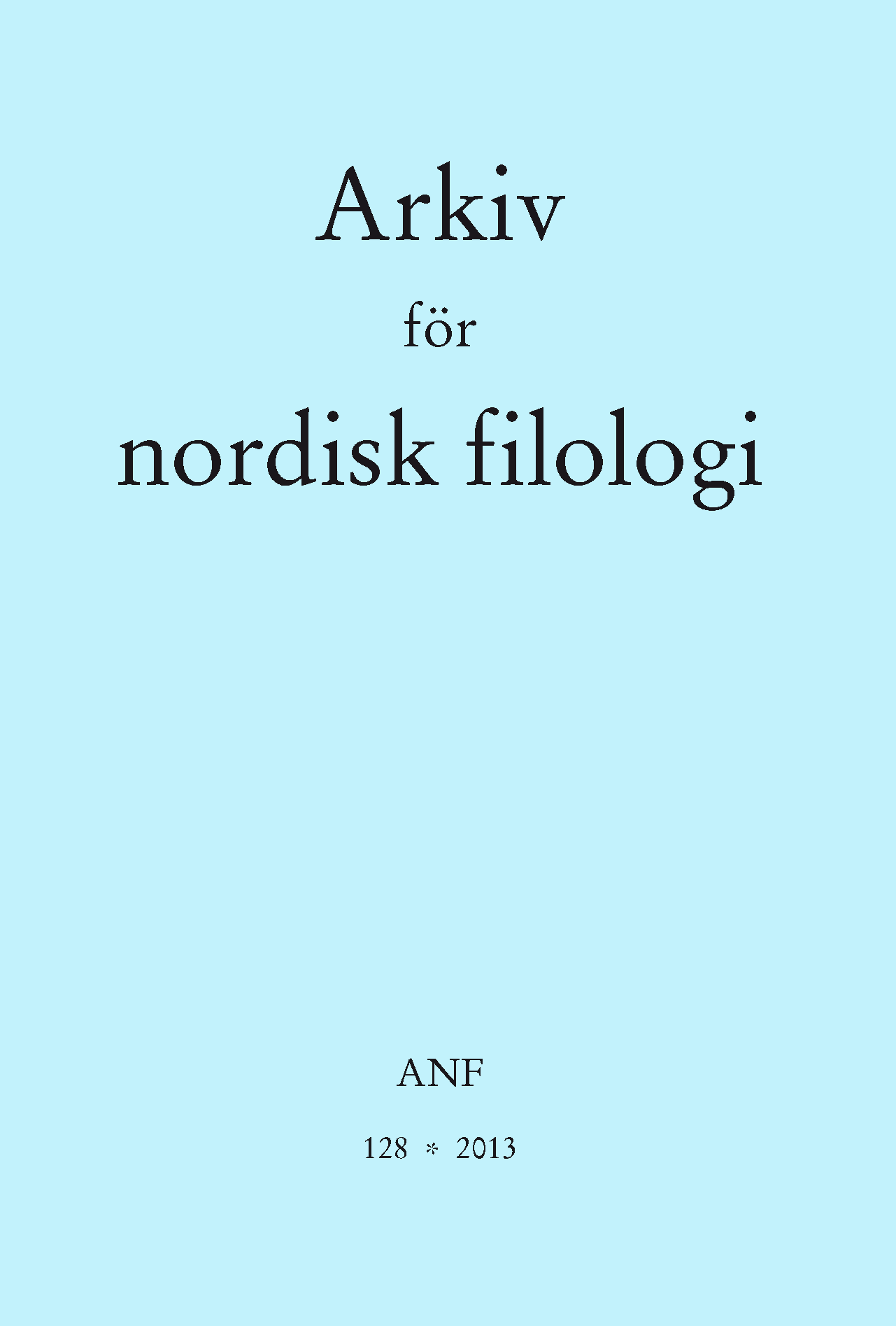Wormianusredaktören: Språk, tro och sanning vid 1300-talets mitt
Abstract
Codex Wormianus (W: AM 242 fol) is the greatest compilation of grammatical literature in Old Norse, written in the middle of the fourteenth century, probably at the Benedictine monastery of Þingeyrar in northern Iceland. It contains Snorri’s Edda and the four so-called Grammatical Treatises (1–4GT). The prologue to 1–4GT and portions of text in 2GT and the prologue to Snorri’s Edda are unique to W. I establish the common authorship of these texts by the occurrence of features in all three that are not otherwise found in W, and analyse their content synoptically. The author’s views on language seem to be inspired by Snorri’s Edda and 2GT, but also by Stjórn (the Old Testament paraphrase), where the hand of the W-scribe is found in two copies. The author of the unique texts, the redactor, and the scribe thus seem to be the same person. His thoughts on a universal phonology are unique for his time and are founded on a creative reading of 2GT and Stjórn. I also compare the W-redactor/scribe to three contemporary monastic poets, who similarly formulate their thoughts on language in relation to Snorri’s Edda. Whereas the W-redactor theorizes the possibility of a true language but argues for retention of the traditional, obscure style, the poets argue for a lucid style and demonstrate this in practice. The differing attitudes of the W-redactor and the poets are probably due to their respective subjects; he studies language and secular poetry from a grammatical point of view, they are concerned with religious poetry. The thoughts on language of all four betray influence from mainstream learned literature (Historia scholastica, Poetria nova, Gregory the Great), but is above all predicated on the strong position of traditional poetic diction in general and of Snorri’s Edda in particular.


